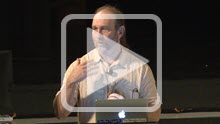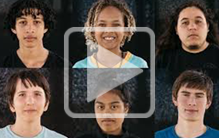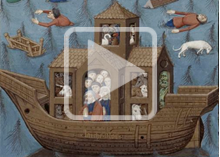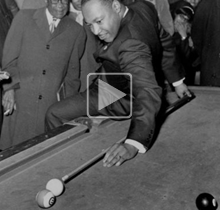Humanities Center Forums
The Humanities Center in the CSU, Chico College of Humanities and Fine Arts was founded in 1999. Its mission is to stimulate the life of the mind among faculty, students, and the community at large, by creating and nurturing an interdisciplinary intellectual culture of ideas. Towards that end, it chooses each year a theme to explore and invites speakers from within and outside the University to speak on topics related to this theme.
In Professional & Continuing Education’s continuing effort to bring more on-campus events to online students – and to the community at large – many of these talks are being recorded and are available for viewing online.
Humanities Center Forums
Climate Change and the Existential Crisis: A Panel on Ethics and Actions
 Dr. Mark Stemen, Geography and Planning Department
Dr. Mark Stemen, Geography and Planning Department
Dr. Troy Jollimore, Philosophy Department
Dr. Randy Larsen, Philosophy Department
Haley Adams, Associated Students Sustainability Coordinator
CSU, Chico
What right do we have to protest government inaction in the face of such potentially severe threats to civilization itself? How big does the existential threat need to be before we are called to disruptive action? What right do we have to destroy other living beings and the potential of future generations as we continue to emit dangerous chemicals into the atmosphere in our insatiable need to produce and consume? The panel explored these questions and the effects of climate change on the social contract and principles that hold society together. Presentation time: 1 hour and 37 minutes | View Now
Environmental Justice As Freedom
 Julie Sze
Julie Sze
Founding Director, Environmental Justice Project
UC Davis
Julie Sze, an advocate, professor, and leader for environmental justice at UC Davis, opens her presentation with a quote from Stevie Wonder’s 1975 song “Saturn” from Songs in the Key of Life, explaining how the message of unclean air, violence, war, and consumerism is still relatable today. A sneak peek of her book, Environmental Justice in a Moment of Danger, reveals we are living in a precarious time in history, a crossroads of sorts. The presentation showcases her detailed research and encourages passion for a safer future. Presentation Time: 1 hour and 20 minutes | View Now
Noah's Arkive: Utopia, Failure and Climate Change
 Jeffrey Cohen
Jeffrey Cohen
Dean of Humanities, Arizona State University
Along with being the Dean of Humanities, Jeffrey Cohen is the co-president of the Association for the Study of Literature and the Environment at Arizona State University. His research is rooted heavily in ecology and climate change, leading him to his current work. A project, co-written with Julian Yates, called Noah's Arkive: Towards an Ecology of Refuge. In this presentation he compares the story of human survival in the face of climate change to the biblical story of Noah’s Ark. His comparative analysis includes literature, art, and stories that span across centuries. Presentation Time: 1 hour and 08 minutes | View Now
My Father’s Wars: An Intimate Ethnography of Exile, Migration, and the Violence of a Century
Dr. Alisse Waterston
Department of Anthropology, City of University of New York
Dr. Alisse Waterston presents a dramatic personal story, part memoir and part social history, which suggests large questions about the dramatic forces of history, the experience of exile and immigration, the legacies of culture, and the enduring power of memory. Waterston engages in difficult topics by means of intimate ethnography that can serve as a meaningful way to think about, reflect upon, and even embrace painful histories—one's own and that of others. She is author of six books, served as editor of North American Dialogue, and founding editor of Open Anthropology. Join Professor Alisse Waterson in her person journey. Presentation time: 1 hour and 16 minutes | View Now
Tourism and Pilgrimage
Dr. Jesse Dizard, Anthropology Department, CSU, Chico
Dr. Sarah Pike, Department of Religious Studies, CSU, Chico
Dr. William Nitzky, Anthropology Department, CSU, Chico
Dr. Corey Sparks, English Department, CSU, Chico
Dr. Matthew Stone, Recreation, Hospitality and Parks Management Department, CSU, Chico
Following their 2017-2018 theme, “The Journey,” the Humanities Center in the College of Humanities and Fine Arts at CSU, Chico offers a panel discussion that digs into the meaning and nuance of pilgrimage, sacred journey, and tourism. In examining these journeys into the sacred and profane, along with the motives behind such journeys, the panel investigates the question, “Is there a difference between pilgrims and tourists?” As the panel examines and juxtaposes various types of purpose-based travel, ancient and new, questions are raised and explored in a multidisciplinary, humanities-focused backdrop. Presentation Time: 1 hour & 51 minutes | View Now
The Journey Motif in Films of the Coen Brothers
Dr. Troy Jollimore
Philosophy Department, CSU, Chico
Starting in the 1990s, Joel David Coen and Ethan Jesse Coen have produced films of great popular and critical success – among them, “Fargo,” “The Big Lebowski,” and “No Country for Old Men.” Professor Troy Jollimore begins his presentation by discussing the Coen brothers’ work in the context of a saying attributed to Leo Tolstoy and several others: There are only two stories – (1) a hero goes on a journey and (2) a stranger comes to town. Looking at the brothers’ remarkable career of three decades and 17 films, Jollimore says, “For the Coen brothers, the deep and complicated relationship between being at home and being on a journey is something that animates a great deal of their work.” Presentation time: 1 hour, 23 minutes | View Now
Martin Luther: 500th Anniversary of the 95 Theses
Dr. Erin Kelly, English Department, CSU, Chico
Dr. Jason Nice, History Department, CSU, Chico
Dr. Joel Zimbelman, Comparative Religion & Humanities Department, CSU, Chico
The German priest and professor of theology Martin Luther (1483-1546) may or may not have started a revolution in 1517 when he presented his famous Ninety-Five Theses. His actions led to a break with the Catholic Church of Rome and resulted in the formation of various Protestant denominations. Five hundred years later, faculty from three departments within the College of Humanities and Fine Arts discuss the origins, impact, and legacy of the Protestant Reformations. Presentation Time: 1 hour, 18 minutes | View Now
New Musical Resources: Exploring Acoustic / Kinetic Objects
Trimpin
Over a long and distinguished career, the artist known as Trimpin has taken the term “mixed media” as far as anyone. His works incorporate music, art, science, engineering and theater to create a “symphony of actions.” In this presentation, Trimpin shares photos of his creations – many of them made from objects he finds in junkyards and thrift stores – that explore the physics of sound and movement. He has performed with symphony orchestras and the Kronos String quartet, and his installations, both temporary and permanent, can be found in numerous countries. Presentation time: 1 hour, 20 minutes | View Now
Innovation's Shadow
Dr. W. Patrick McCray
History Department, University of California, Santa Barbara
Dr. W. Patrick McCray discusses how revolutions – technological, political, or otherwise – are messy. Throughout history industrial revolutions are viewed through the lens of innovation, but if we leave the innovation’s shadow, we discover new insights into the nature of invention and innovation. Dr. McCray is the author of the award-winning book, “The Visioneers: How an Elite Group of Scientists Pursued Space Colonies, Nanotechnologies, and a Limitless Future (2013, Princeton University Press). Presentation time: 1 hour, 10 minutes | View Now
Steampunk on Film: Reinventing the Present
Dr. David Pike
Department of Literature, American University
Steampunk is a contemporary genre of speculative fiction, performance, and maker culture with roots in alternate nineteenth century technologies. Its practitioners reimagine present and future histories according to previously unexplored possibilities of Victorian-era invention. Dr. Pike’s presentation explores the changed relationship to history, society, and the future proposed by 1950s and contemporary steampunk film. Presentation time: 1 hour, 4 minutes | View Now
Digital Humanities
Dr. Kim Jaxon, English
Dr. Patrick Newell, Dean, Meriam Library
Dr. Corey Sparks & Dr. Daniel Veidlinger, Comparative Religion & Humanities
The presenters share how they have used computational methods and digital media to pursue their teaching methods and research in the humanities. Dr. Jaxon gives two examples of learning pedagogies that use digital methods – middle school students sharing blogs with CSU, Chico teaching credential students and using principles of gaming with CSU, Chico freshmen required to complete English remediation. Dr. Newell explores the conjunctions of scholarly communications, digital humanities, and academic libraries. Dr. Sparks uses digital methods in his study of medieval prisons. Dr. Veidlinger describes the time-saving computer programs that quickly compare historical texts that appear in many different versions. Presentation time: 1 hour, 28 minutes | View Now
Curious Novelties: The Powers of Invention in Precarious Times
Dr. Patricia Ingham
Department of English, Indiana University
What is the place of humanistic study in the university in the current ago of innovation and rapid technical advances? Keeping this question – and the Humanities Center’s 2016-2017 theme of “Invention” – in mind, Dr. Patricia Ingham looks at the medieval history of two key terms, “novelty” and “curiosity.” She discusses how attention to this history of invention might help us to dream a sustainable future for ourselves and those we love. Presentation time: 1 hour, 7 minutes | View Now
Playing Indian: Europeans, First Peoples, & Struggles for Hegemony in Early North America
Dr. William J. Campbell
History Department, University of Memphis
In the first part of his presentation, Dr. William Campbell looks at the phenomenon of American white people dressing in what they perceive to be Indian clothing, haircuts, and body paint. This goes back historically to the Boston Tea Party, in which the rebellious colonists threw British tea from ships into the water while dressed as Mohawks. This appropriation of Indian culture and dress, Dr. Campbell notes, is not limited to the United States. There are “Indian Clubs” all over Europe where white people play out their “misleading, romanticized ideas” of how Native Americans look and act. He goes on to talk about issues in his book, “Speculators in Empire: Iroquoia and the 1768 Treaty of Fort Stanwix” (University of Oklahoma Press, 2014), and concludes by answering questions from the audience. Presentation time: 56 minutes | View Now
From Hull House to Hip-Hop: On the Fierce Urgency of Play
Lisa Yun Lee
Director of the School of Art & Art History, University of Illinois at Chicago
 The first image Lisa Yun Lee shows her audience is a photo of Rev. Martin Luther King, Jr., wearing his usual conservative suit and leaning on a pool table, attempting a behind-the-back trick shot. In this presentation, Lee shares her research on the importance of play in social justice movements, starting with the acclaimed Hull House settlement house. Hull House was co-founded in 1889 by Jane Addams and featured a large playground, as recreation was considered important to the residents’ well-being. Lee illustrates how collective joy and ideas of artistic permissiveness infused the struggles of Hull House clients. She goes on to share examples of the use of art, theater, and recreation in more current social movements. Presentation time: 1 hour, 4 minutes | View Now
The first image Lisa Yun Lee shows her audience is a photo of Rev. Martin Luther King, Jr., wearing his usual conservative suit and leaning on a pool table, attempting a behind-the-back trick shot. In this presentation, Lee shares her research on the importance of play in social justice movements, starting with the acclaimed Hull House settlement house. Hull House was co-founded in 1889 by Jane Addams and featured a large playground, as recreation was considered important to the residents’ well-being. Lee illustrates how collective joy and ideas of artistic permissiveness infused the struggles of Hull House clients. She goes on to share examples of the use of art, theater, and recreation in more current social movements. Presentation time: 1 hour, 4 minutes | View Now
Thinking Outside the Xbox: the play between religion and video games
Gregory Price Grieve
Department of Religious Studies, University of North Carolina at Greensboro
Professor Gregory Price Grieve's work investigates the role that popular forms of religion play in what it means to be human in the digital age. In this presentation, Professor Grieves looks at the role of religion in video games. He looks back through the centuries at how games and play have intersected with religion. Some video games are overtly religious – examples include “Computer Bible Games” and “Left Behind – Eternal Forces.” In other video games, the fantasy worlds they create include such spiritual concepts as quests for goodness and returns to grace. Presentation time: 1 hour, 10 minutes | View Now
Note: Part-way through his presentation, Professor Grieve refers to a speech by the character Heimskr in the video game Skyrim. You can hear the speech here.
Street Chants and Violins, Politics and Race in Venezuela
T.M. Scruggs
Ethnomusicologist, University of Iowa
Recent protests in the more wealthy parts of several cities in Venezuela reveal that an intertwined class and racial divide remains in that country. Mr. Scruggs looks at how music and street chants can help reveal the ethnic and class composition of the mass movement that first elected Hugo Chávez president in 1998. This overview critically considers to what extent the musical and social landscape in Venezuela has changed from government and community initiatives. Mr. Scruggs taught at the Universidad de los Andes in Mérida, Venezuela in 2005–06, on a Fulbright grant. His primary research focus is on the use of music to construct social identity in the Americas. Presentation time: 46 minutes | View Now
Please note: Due to technical problems, you may need to turn up the sound starting at the 11:12 mark in the presentation.
Dangerous Crossings: Race, Species & Nature in a Multicultural Age
Dr. Claire Kim
Department of Political Science & Asian American Studies, UC Irvine
Dr. Kim presents material from her forthcoming book, which examines impassioned disputes over how immigrants of color, racial minorities and Native peoples in the U.S. use animals in their cultural traditions. She is an Associate Professor of Political Science and Asian American Studies and teaches classes on race, multiculturalism, minority politics, social movements, immigration, and human-animal studies. Dr. Kim’s first book, "Bitter Fruit: The Politics of Black-Korean Conflict in New York City" (Yale University Press, 2000), won two awards from the American Political Science Association: the Ralph Bunche Award for the Best Book on Ethnic and Cultural Pluralism and the Best Book Award from the Organized Section on Race and Ethnicity. She has been a fellow at the Institute of Advanced Study in Princeton, New Jersey and the University of California Humanities Research Institute. Presentation time: 1 hour, 26 minutes | View Now
Forrest Gander
Forrest Gander
English Department, Brown University
A poet, translator, essayist, and editor, Forrest Gander is the author of more than a dozen books. His 2011 poetry collection, “Core Samples from the World,” was a finalist for both the Pulitzer Prize and the National Book Critics Circle Award. He has been awarded fellowships from the National Endowment of the Arts, and from the Guggenheim, Howard, and Whiting Foundations. In this presentation, he focuses on his translation projects by reading and discussing poetry from around the world. In doing so, he teaches his audience a great deal about the arts of both poetry and translation. Presentation time: 1 hour, 16 minutes | View Now
Bunker Fantasies, Post-Apocalyptic Culture, and an Expanding Subterra
Wayne Barrar
School of Fine Arts, Massey University, Wellington, New Zealand
Dr. David L. Pike
Department of Literature, American University
Wayne Barrar is a photographer who is interested in how people use and manipulate underground space. His book, “An Expanding Subterra,” depicts hidden underground worksites of mines, power stations, universities, storage facilities, and offices, as well as the surreal domestic world of the subterranean homes in Coober Pedy, an opal mining town in South Australia. He shares 71 of his photos, many of which show surprisingly elaborate underground homes and other structures.
Dr. David Pike presents his findings on his project, “The Bunker Fantasy.” He explains that the project is based on two basic questions: 1) What happens to built underground environments meant to be indestructible when they become obsolete? and 2) What is so compelling about these spaces – why do we build them when they usually prove to be totally useless and why do we keep visiting them after the fact? Dr. Pike’s books include “Metropolis on the Styx: The Underworlds of Modern Urban Culture, 1800–2001,” “Subterranean Cities: The World Beneath Paris and London, 1800–1945,” and “Passage Through Hell: Modernist Descents, Medieval Underworlds.” Presentation time: 1 hour, 14 minutes | View Now
How to Write a Revolution
Dr. Martin Puchner
English Department, Harvard University
Dr. Puchner’s presentation focuses on “The Formation of a Genre,” a chapter about “The Communist Manifesto” from his book, “Poetry of the Revolution: Marx, Manifestos, and the Avant-Gardes.” He explores ways that literature can contribute to revolutions, specifically the contributions of manifestos. His analysis of this form of writing is not from the propaganda viewpoint, but rather through the lens of literary studies. Dr. Puchner shows how these documents translated the ideas and philosophy behind revolutions into action. He states that Karl Marx and Friedrich Engels, with their 1848 publication of “The Communist Manifesto,” created the genre of the manifesto. Presentation time: 1 hour, 25 minutes | View Now
"I wanted to write/a poem/that rhymes/but revolution doesn't lend itself to (Hip Hopping)"
Dr. Tracy Butts
English Department, CSU, Chico
Dr. Butts takes her title from a poem by the black poet Nikki Giovanni. By its very nature, Hip Hop is revolutionary. Born of necessity, Hip Hop gave a cultural and political voice to disenfranchised and disaffected youth of the late 1970s. More than 30 years later, Hip Hop culture has remained true to many of the convictions and aesthetic criteria that evolved out of the Black Arts Movement of the '60s, including calls for social relevance, originality, and a focused dedication to produce art that challenges American mainstream artistic expression and cultural values. Dr. Butts shares poetry and music throughout her presentation as she discusses the power and the voice of Hip Hop. Presentation time: 1 hour, 5 minutes | View Now
The presenter utilized several YouTube videos during the presentation. To watch the videos, pause the presentation and open a second browser window and type in the YouTube video URL.
Should Health Care be Considered a Right in the United States?
Dr. Andrew Flescher
Associate Professor of Preventive Medicine, Stony Brook University, New York
The subtitle of Dr. Flescher’s presentation is “Re-examining the Ethics and Constitutionality of the Affordable Health Care Act,” popularly referred to as “Obamacare.” Dr. Flescher outlines the problems that are fueling the argument for a national health care system. He notes that the United States has a lower life expectancy rate and higher infant mortality rate than many other industrialized nations, and identifies the worsening financial problems of the U.S. health care system. He then explains the basics of “Obamacare.” Dr. Flescher’s talk concludes with an examination of ethical and constitutional issues to consider regarding approaches to health care delivery. Length: 1 hour, 33 minute | View Now
The Rise of the Christian Movement in Modern China
Dr. Xi Lian
Research Associate at the Fairbank Center for Chinese Studies at Harvard University
Xi Lian is the author of "Redeemed by Fire: The Rise of Popular Christianity in Modern China." In the course of the twentieth century, Protestant Christianity in China underwent a historic transformation—from a beleaguered alien faith presided over by Western missionaries into a vibrant, indigenous religion of the masses. This new religion initially took the form of sectarian groups and independent preachers arising outside the missionary establishment. Christians endured decades of repression by the Communist state after 1949, but Christianity has since blossomed into an underground church movement with tens of millions of followers. As both a religious and a social movement, it has emerged amidst the upheavals of modern China, with a current membership that rivals that of the Chinese Communist Party. Dr. Lian has studied this phenomenon extensively and talks about it in this presentation. Presentation time: 1 hour, 17 minutes | View Now
China and the West
Yiyun Li
English Department, UC Davis, and Award-Winning Author
Yiyun Li was born in China and came to the United States in 1996. She is an award-winning fiction writer, and is a 2010 recipient of the prestigious MacArthur Fellowship. Li has published three books, all in English. The most recent is “Golden Boy, Emerald Girl,” a collection of short stories. Li presents her audience with insights into what inspires her writing. She has an intense interest in real-life people and their stories; these stories often form the basis for her writing. She notes, “A writer’s job is to eavesdrop on conversations; but it is also to eavesdrop on people’s hearts.” Presentation times: Part 1 - 42 minutes; Part 2 - 22 minutes | View Now - Part I | View Now - Part II
Feeding China's Little Emperors in the Age of Globalization
Dr. Chunyan Song
Sociology Department, CSU, Chico
Dr. Chunyan Song, faculty member in the CSU, Chico Sociology Department, shares findings from her ongoing study of child feeding practices. Her research is focused on a comparison of child feeding practices among the United States, Japan, and China. In this presentation, Dr. Song talks about world-wide changes in nutrition, including the spread of American fast food chains, and the context in which food choices are made in China. "Little Emperors" refers to the fact that, for most Chinese couples, there is a government mandate that they may have only one child. This causes almost all the family's attention to focus on this only child. Dr. Song presents preliminary data from studying 500 children in the cities of Beijing and Linyi. Presentation time: 1 hour, 3 minutes | View Now
